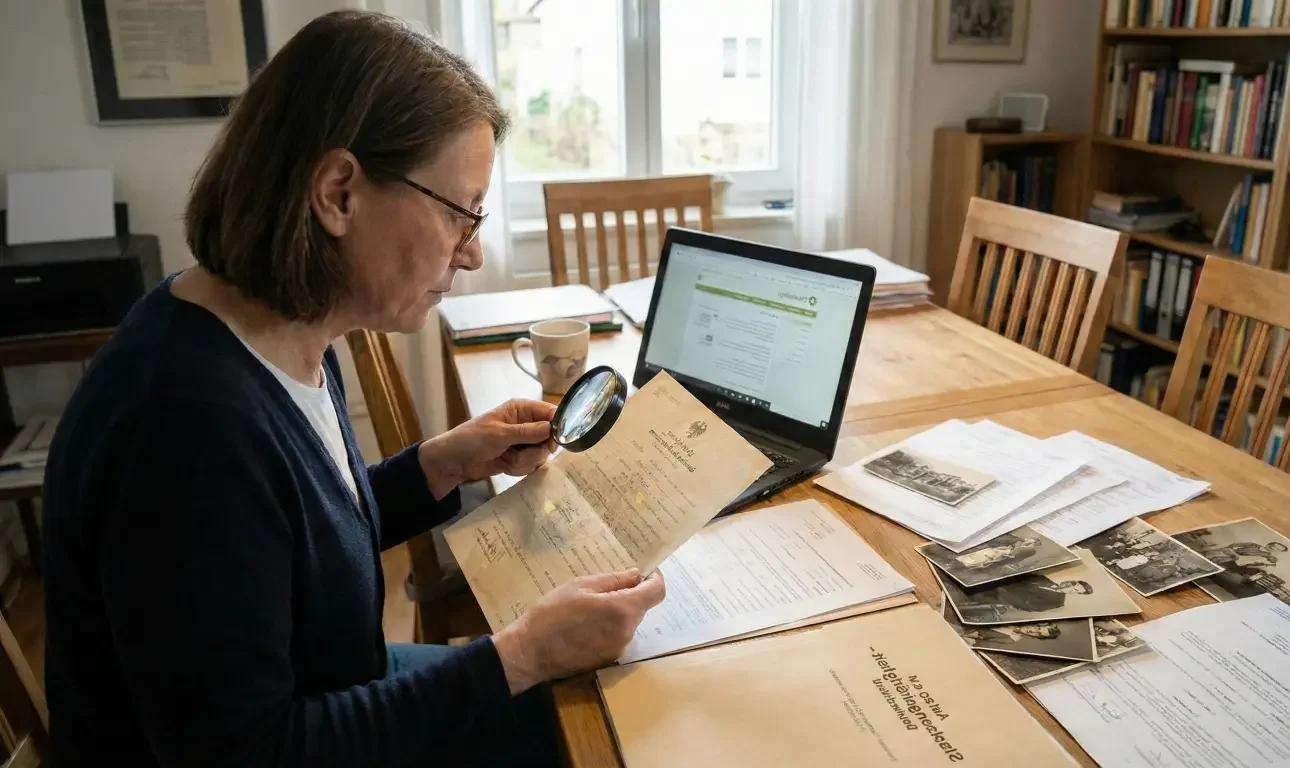Move to Germany Without a Job Offer — The Game-Changing Opportunity Card (Chancenkarte)
A bold move into Europe’s engine room
Imagine landing in Berlin or Munich tomorrow — without a job offer, without a sponsor, and yet legally allowed to explore your field, build your network, and secure employment — all while earning part-time income to sustain yourself. That’s no longer a fantasy.
Germany has launched a bold new pathway called the Opportunity Card (in German, Chancenkarte), enabling skilled professionals from non-EU countries to move to Germany without a job offer. For 12 months, you’ll be free to job search on German soil, work up to 20 hours per week, try out potential employers with trial jobs, and (if all goes well) convert to a longer-term work permit or residence permit.
It’s been called a revolution in skilled immigration. And for professionals from Latin America, Asia, Africa, or other non-EU regions, it may open a gateway to one of Europe’s strongest economies.
In this article, I’ll walk you through everything you need — from eligibility and documentation to benefits, strategies, and how 3A Immigration Services can help you make this move smoothly.
Why Germany’s letting you move without a job offer
The labor crisis and demographic challenge
Germany faces one of the most acute demographic and workforce challenges in the developed world. Over the next decade, millions of skilled professionals will retire, and the pipeline of local talent can’t keep up. Estimates vary, but Germany expects a shortfall of five million skilled workers by 2035 unless new talent is brought in.¹
To bridge that gap, the German government has rolled out more liberal immigration laws geared toward attracting global talent. The Skilled Immigration Act (Fachkräfteeinwanderungsgesetz) was revamped, introducing a points-based “potential pillar” — and the Opportunity Card is its flagship instrument.
A better alternative to the classic job-seeker visa
Before June 2024, non-EU professionals wanting to move to Germany had to rely primarily on a job seeker visa, which often required a completed university degree, proof of funds, and in many cases, German equivalence recognition. The process was restrictive, uncertain, and often required a job offer or employer sponsorship. The Opportunity Card replaces (or strongly complements) that route.
The key difference: You don’t need a job in hand before you move. You arrive, and then you search. That shifts the risk and gives you more agency. Over 10,000 Opportunity Card visas were already approved in the first year (June 2024 to May 2025).
What is the Opportunity Card (Chancenkarte)? — The core structure
Definition and purpose
The Opportunity Card is a residence permit that allows non-EU nationals to enter Germany and stay for up to 12 months (one year) to look for a job or undertake trial work/study opportunities.
During this period, you are permitted:
- Part-time employment (up to 20 hours/week)
- Trial jobs (up to 2 weeks per employer, unlimited number of times)
- Once you secure a suitable position, you can convert (or “upgrade”) the Opportunity Card into a longer-term work-based residence permit or even permanent residency.
The permit is initially valid for one year. In special cases, extensions or transitions to a longer permit are possible.
It aims to simplify the entry process by eliminating the requirement for a pre-arranged job contract or employer sponsorship.
Who qualifies? Eligibility criteria in detail
To successfully move to Germany without a job offer using this pathway, you must satisfy a baseline of eligibility requirements and, in many cases, reach a minimum score under the points system.
Below is a breakdown of these criteria.
1. Educational or vocational qualification
You need either:
- A recognized university degree, or
- At least two years of vocational training (apprenticeship / professional training) under your country’s rules
If your qualification is recognized in Germany or fully matches German standards, you may be exempt from scoring under the points system.
If it is only partially recognized, you must rely on the points system to make up the difference.
2. Language skills: German or English
You must demonstrate basic proficiency in:
- German at A1 level, or
- English at B2 level
Stronger skills (German B1, English C1) can earn you additional points.
3. Points system (at least six points)
If your qualifications are not fully recognized, you’ll qualify via a points system. You must achieve at least 6 points across several categories:
Typical point categories include:
| Criterion | Maximum Points | Notes |
|---|---|---|
| Professional experience | ~2 points | 2 years of experience in past 5 years |
| Age | ~2 points | Under certain age thresholds (e.g., ≤ 35 or ≤ 40) |
| Previous stay in Germany | ~1 point | At least 6 months legally in Germany (excluding tourist stay) |
| Link via spouse or joint application | ~1 point | If applying together with spouse/partner |
| Language bonuses / better level | ~1–2 points | German B1, English C1 etc. |
| Recognition / degree status | Partial recognition adjustments | Some points if partial match |
If your professional qualification is fully recognized, you may bypass the points requirement and apply directly.
4. Proof of financial means / livelihood
You must show that you can support yourself financially for the entire 12-month period (or that you can generate income via part-time work).
Sources indicate you’ll need at least €1,027/month or equivalent in your local currency (2024 reference).
One common way to demonstrate this is via a signed part-time employment contract (20h/week) or having a blocked account.
5. Health insurance & legal standing
You must have valid health insurance in Germany.
You must be a citizen of a non-EU (third) country, and either apply from your home country or from within Germany when holding a valid permit.
6. Other restrictions
- Tourist stays do not count toward “previous stay” in Germany.
- Self-employment is not permitted during the Opportunity Card period. You may convert later to a freelance permit in some cases.
- If you apply with a spouse or partner, some points may be shared.
How to apply: Step-by-step process & timeline
Being prepared and methodical improves your chances. Here’s a breakdown of the application journey for those who wish to move to Germany without a job offer via the Opportunity Card.
Understanding how to move to Germany without a job offer
Step 1: Self-check / eligibility assessment
Many official German portals provide a self-check tool to preliminarily assess your eligibility.
Use it to estimate whether your documents, qualifications, experience, and language skills meet the criteria. Adjust gaps before applying.
Step 2: Prepare your documentation
Key documents you typically need:
- Valid passport
- Proof of educational / vocational credentials (degrees, transcripts, certificates)
- Proof of language knowledge (certificates in German or English)
- Evidence of financial means or employment contract for 20 h/week
- Health insurance proof
- CV / resume and professional references
- If applicable, proof of prior stay in Germany
- Application forms from German embassy / foreign office
Make sure you have certified translations, notarized copies, and where needed, recognition reports (e.g. via the Anabin database)
Step 3: Submit application at German mission or foreigners’ office
- If applying from abroad: submit at the German embassy or consulate in your home country.
- If already in Germany holding a valid permit: apply via your local Foreigners’ Registration Office (Ausländerbehörde)
Make sure to indicate you are applying under the Opportunity Card (“Chancenkarte / job search”) option.
Step 4: Processing & waiting period
Processing can take several weeks to a few months depending on embassy workload, verification of credentials, and local authority queues.
During this time, the authorities check your documents, verify your credentials, and assess your points score.
Step 5: Arrival (if applying from abroad) and registration
Upon approval, you’ll receive a visa / entry permit that allows you to enter Germany and later register your residence.
Once in Germany:
- Register your address at the local Registration Office (Einwohnermeldeamt)
- Convert the visa to a residence permit at your local Foreigners’ Registration Office (Ausländerbehörde)
- Maintain health insurance and communication with authorities
Step 6: Job search + permitted work
Now you begin the main period:
- Engage in part-time work (up to 20 h/week)
- Undertake trial work (2-week assignments) with prospective employers
- Network, apply for full-time jobs, attend interviews
- Use German tools (job boards, networking events, recruitment agencies)
- Prepare to convert your permit once employment is secured
Step 7: Transition / conversion to long-term permit
Once you secure a suitable job / employment contract, you may apply to convert from the Opportunity Card to a standard work-based residence permit (e.g. Aufenthalt zur Erwerbstätigkeit) or EU Blue Card, depending on your role and salary.
Check that your contract meets the salary/qualification thresholds for the permit you intend to switch into.
Benefits for potential clients / professionals
This new pathway to move to Germany without a job offer carries several compelling advantages — especially when compared to traditional visa or sponsorship models.
1. Full agency and flexibility
You arrive without having to commit to a job before arrival. You can explore multiple employers, try short trial work, and negotiate from a position of more choice.
2. Legal part-time work from day one
While job searching, you can earn income and sustain yourself via part-time work (up to 20 hours/week). Many early applicants report earning over €1,000/month with just part-time work at minimum wage (≈ €12.41/hour as of mid-2024).
This helps ease financial pressure, cover living costs, and avoid relying solely on savings.
3. Trial work with prospective employers
Short trial assignments (2 weeks) let both you and the employer test compatibility before a long-term contract. This reduces risk of mismatch and boosts confidence.
4. Pathway to permanent residence (ultimately)
If you find a job, you can convert the Opportunity Card into a longer-term work visa, residence permit, or Blue Card. Over time, you may become eligible for permanent residency (Niederlassungserlaubnis) or even naturalization.
5. Simpler entry for employers
Employers benefit because they no longer need to arrange sponsorship or go through heavy Federal Employment Agency approval processes. The Opportunity Card expands the candidate pool and speeds up hiring.
6. Lower risk compared to relocation from afar
Instead of negotiating a contract from your home country and relocating with uncertainty, you can move to Germany, test the market, and find the best match — all under legal status.
7. Inclusion of diverse skills and non-degree vocational backgrounds
The Opportunity Card is not limited to university graduates. If you hold a vocational qualification of 2+ years and meet other criteria, you can still qualify. That opens doors for technicians, tradespeople, artisans, and professionals beyond academic tracks.
Strategies to maximize your success under the Opportunity Card
Securing a job during that 12-month window requires intention, planning, and smart effort. Here’s how to make the most of it.
1. Pre-move groundwork
- Polish your resume in German style / European CV format
- Learn German (if not already) up to at least A2/B1 — even though only A1 is required
- Begin networking online (LinkedIn, niche job forums, German-focused groups)
- Translate and certify your credentials in advance
- Familiarize yourself with recognized German job boards (e.g. Xing, StepStone, Indeed Germany) and sector-specific portals
2. Hit the ground running after arrival
- Set up your local address registration, open a German bank account, and get local phone service
- Begin applying immediately — have a list of target companies, send cold emails
- Attend local career fairs, meetups, networking events
- Use regional agencies or employment services (Agentur für Arbeit)
- Enroll in language classes or integration programs in parallel
3. Use trial work effectively
- Treat 2-week trial jobs seriously — deliver quality work
- Ask for feedback, build references
- Request employer opinions or testimonials in writing
- Use trial time to showcase soft skills and cultural fit
4. Be strategic about job offers
- Aim for roles that match or slightly exceed your qualification
- Negotiate contracts that allow you to easily convert into work-based permits
- Verify salary thresholds and working conditions
- Be open to relocation within Germany — many jobs exist outside major cities
5. Plan ahead for permit conversion
- Document everything (employment contract, payslips, tax statements)
- Ensure your job meets requirements for the permit category you’ll convert into
- Submit conversion application promptly and be prepared for additional documents
Risks, limitations, and considerations
No pathway is without caveats. Being aware helps you avoid common pitfalls.
- If you fail to secure a job within 12 months, the permit may expire, and extension is not guaranteed.
- There is limited data on how many Opportunity Card holders successfully transition long-term; early reports suggest around 10,148 visas were granted in the first year, but follow-up with outcomes is lacking.
- Self-employment is not allowed under the permit — you must switch to a different residence permit to freelance.
- The 20h/week work limit may limit earnings, especially early on
- You must maintain financial sufficiency and insurance at all times
- Language and cultural adaptation are critical — German working environments expect punctuality, direct communication, and adherence to local norms
- Processing delays in embassies / foreign offices may cut into your effective job-search time
Case study / storytelling example
To bring this to life, consider the real-life story of Daniela, a software engineer from Colombia who wanted to move to Germany without a job offer.
“I had three years of experience, a degree in computer science, but no German connections. When I heard about the Opportunity Card, I applied while in Bogotá using the self-check tool. I gathered my transcripts, took a B2 English test, and secured a small part-time contract from a remote German startup (20 h/week). Once approved, I moved to Berlin. Two weeks later, I attended a local meetup, met a fintech CTO, landed a 2-week trial, and converted it into a 12-month contract. By the 8th month, I switched to a full-time role and applied for the EU Blue Card. Within two years I’ve moved toward permanent residency.”
Daniela’s story illustrates how flexibility, networking, and proactive effort can turn the Opportunity Card into a launch pad.
(Names and details anonymized for illustration.)
Mapping the path: From Opportunity Card to German residency
Let’s view your journey as milestones.
- Approval & entry — you receive the visa/residence permit
- Registration & orientation — local admin, health, integration
- Job search + part-time work — trial jobs, interviews
- Employment contract — full-time or qualified role
- Convert your permit — to work permit or EU Blue Card
- Residency accumulation — after required years, apply for permanent status
- Naturalization — eventually apply for German citizenship (if eligible)
Along the way, your focus should remain proactive: documenting accomplishments, building references, and aligning your job with the eligibility criteria for conversion.
Why international professionals should act now
- The Opportunity Card launched June 1, 2024, so it’s a brand-new law — early entrants may benefit from more accessible processing and less competition.
- Germany’s demand for skilled workers is intensifying, so government support and incentives may expand
- Employers are increasingly aware of this route and may actively recruit Opportunity Card holders
- As data is still nascent, the system may evolve favorably to address feedback and gaps
- For career-focused professionals, the risk vs reward is heavily tilted toward reward
Common questions & FAQs
Q: Can I bring my spouse or children with me?
A: Not automatically under the Opportunity Card. Family reunification rights generally only open after you switch to a longer-term residence permit.
Q: Can I self-employ or freelance during the 12 months?
A: No. The Opportunity Card restricts you to employment or trial work. You’d need to convert to a freelance/residence permit to legally self-employ.
Q: What if my qualification is not recognized in Germany?
A: You must then enter via the points system, gathering points from experience, language, age, prior stay, etc.
Q: Is German mandatory?
A: Basic German (A1) or English (B2) is required. But better language skills (German B1, English C1) earn you more points and improve your job prospects.
Q: How many Opportunity Cards have been issued so far?
A: In the first year (June 2024 to May 2025), over 10,148 visas were granted out of ~12,177 applications processed. (DIE WELT)
Q: Can I extend the Opportunity Card beyond 12 months?
A: Extensions are not guaranteed under the same permit. Instead, the goal is to convert to another permit. Under certain circumstances the stay can be extended by up to 2 years if you have an employment offer.
Example flow: Your 12-month roadmap
Here is a hypothetical timeline to help you pace your activities over the year:
| Month | Focus | Actions |
|---|---|---|
| 0 (pre-approval) | Preparation | Assemble documents, take language exam, self-check, apply |
| 1 | Arrival & setup | Register address, bank, phone, submit local permit conversion |
| 2 | Job research | Start sending applications, attend job fairs, network |
| 3-4 | Trial & part-time work | Accept trial assignments, gather references, refine pitch |
| 5 | Target employer hunts | Narrow down companies, aim for interviews |
| 6 | Offer negotiation | Land full-time job offers, compare roles |
| 7 | Permit conversion preparation | Prepare conversion docs, apply for work-based permit |
| 8-12 | Stabilization & growth | Settle into job, build track toward longer-term residence |
Using this structured approach helps you manage progress and avoid scrambling near the end of the year.
Why 3A Immigration Services is your ideal partner
Navigating Germany’s Opportunity Card can feel like a maze — foreign language rules, points calculations, document verifications, embassy protocols, and permit transitions. That’s where 3A Immigration Services steps in. We provide full-service support — from eligibility assessment and points optimization to application submission, local registration, permit conversion, and long-term residency planning. Our team of German immigration experts ensures that your path to move to Germany without a job offer is smooth, compliant, and efficient. Let us walk you through each step and avoid costly mistakes — contact us today to begin your Germany career journey with confidence.
Conclusion
The launch of Germany’s Opportunity Card (Chancenkarte) marks a significant shift in how non-EU professionals can move to Germany without a job offer. For up to one year, you can live legally in Germany, work part-time, engage in trial jobs, and strategically pursue your ideal employment — all without needing a contract beforehand. With careful preparation, smart strategy, and professional guidance, the Opportunity Card can become your springboard to a thriving career and long-term life in Germany.
This isn’t just immigration — it’s a chance to seize Europe’s economic heart, build new connections, and claim your place in one of the world’s most dynamic nations. The pathway is new, the momentum is strong, and the opportunity is real. Don’t wait — begin the journey today
Related / Source Articles & References
- Opportunity Card: Info for candidates and employers – Chancenkarte
- Germany’s Opportunity Card: How to Apply | Envoy Global
- Opportunity card (Chancenkarte) — Federal Foreign Office
- Chancenkarte Guides: How-tos, Tipps & Tricks








